![]()
Feb 27, 2013 | By Veysel Ayhan
This article was first published in the Turkey Analyst, vol. 6 no. 4 (www.turkeyanalyst.org), a biweekly publication of the Central Asia-Caucasus Institute & Silk Road Studies Program Joint Center. © Central Asia-Caucasus Institute & Silk Road Studies Program Joint Center, 2013.
The battle over the Syrian town Ras al-Ain on the border to Turkey and the recent cease-fire agreement between the Syrian opposition and the Kurdish Democratic Union party (PYD) have major implications for Turkey, affecting its relations with the Kurds in Syria, and with parts of the opposition. The battle over Ras al-Ain has not only resulted in the Kurds seeing Turkey as their enemy, but has also led some Syrian opposition leaders to question the role that Turkey plays in their country. The standing of Turkey has been negatively affected as the notion that Turkey could be of assistance in ending the intensified ethnic, religious or sectarian strife that can be expected after the downfall of al-Assad has been dealt a blow at Ras al-Ain.
Background
On November 8, 2012, Syrian opposition forces of the Free Syrian Army (FSA) and of the Syrian Islamic Liberation Front launched an attack against the Kurdish militia in Ras al-Ain, an ethnically mixed town of Kurds, Arabs and other ethnic groups on the border to Turkey. The control of Ras al-Ain, Serê Kaniyê in Kurdish, had been taken over by the Kurdish Democratic Union Party (PYD) following the withdrawal of the troops of the Syrian government in July 2012. The PYD had refused to join in the uprising against the regime of Bashar al-Assad, instead concentrating on strengthening the Kurdish hold over parts of northeastern Syria. With the attempt of the rebel troops to seize control over the town, the tension between the Kurds and Arabs flared up in heavy fighting.
The FSA and Islamic Liberation front units were repelled by the Popular Protection Units (YPG) of the PYD, but the attacks were resumed on January 16. The Kurdish militia was once again able to repel the attempt of the Islamic Liberation front and FSA units to gain control of Ras al-Ain, and on February 17 another cease fire, the fifth in a row, was declared.
The opposition troops that engaged the Kurds in the fighting over the control of Ras al-Ain were mainly drawn from the local jihadist group Ghorbaa al-Sham and the al-Nusra front alongside FSA units and fighters from Arab clans of the region. The cease-fire was brokered by the intervention of opposition leaders, chief among them Michel Kilo, who have become increasingly concerned that the Syrian popular uprising is going to degenerate into an ethnic strife between Arabs and Kurds, and who want to promote a dialogue with the Kurds. In order to bring about the cease-fire, the rebel representatives had to apply pressure on the groups that have assembled under the umbrella of the Syrian Islamic Liberation Front. The Islamic Liberation Front operates independently of FSA and the Syrian National Council, and it includes Salafist groups and jihadist groups such as Jabhat al-Nusra. However, to speak of a front is somewhat misleading; even though the various Islamist groups in Syria want to demonstrate a determination to form a united a political front, they nonetheless lack a centralized military organization structure.
The cease-fire agreement stipulates that the armed forces withdraw from Ras al-Ain and that a council composed of civilians that represent the various ethnic groups in the town is formed; the control of the border to Turkey is supposed to be handed over to this council that is yet to be formed. The agreement furthermore stipulates that the FSA and YPG jointly assume control over the checkpoints at the entrance to the town. So far, however, the groups of the Islamic Liberation front that have seized the border posts have not turned over their control to the FSA or to the PYD. The border post to Turkey is currently controlled by Ghorbaa al-Sham while the al-Nusra front maintains a military office a short distance from the border to Turkey.
Implications
The battle over Ras al-Ain and the recent cease-fire agreement have major implications for Turkey, affecting its relations with the Kurds in Syria, and with parts of the opposition. Even though the Kurdish fighters were not solely drawn from the PYD, the result of the fighting at which the group has succeeded in demonstrating its military prowess, is that the PYD has gained in stature and legitimacy; the PYD has strengthened its position among the Syrian Kurds, which is an unwelcome development for Turkey that has made clear that it cannot tolerate that the PYD, which is seen as close to the Kurdistan Workers’ Party (PKK), establishes control in the border area. On February 26, Prime Minister Recep Tayyip Erdoğan declared that “the integrity of Syria is very important for us. We cannot tolerate an entity of northern Syria. That would give us different rights. We will not tolerate any formation that damages this integrity, whether it is autonomy, or whether or not it is legal.” Statements such as these are being taken as proof by Kurdish groups that Turkey has lent support to the Arab forces.
As to why the fighting erupted in the first place, the explanations diverge. The Arab side has leveled the accusation that the PYD had been supported by the regime in Damascus, and had acted on its behalf in Ras al-Ain. The Kurdish side on the other hand, accuses Turkey of having declared war against them using Islamist forces. Whatever the cause, there can be no doubt that the battle over Ras al-Ain represents a watershed moment in the Syrian uprising; it has demonstrated that it has the potential to degenerate into an Arab-Kurdish war, and it has sown seeds of mistrust between the two ethnic groups. However, the cease fire agreement that has been brokered — although tenuous — reflects the new awareness that the Arab-Kurdish relationship needs to be mended. For the first time, an official relationship has been established between the PYD and the Free Syrian Army, and the two have committed to maintaining what amounts to a joint control of Ras al-Ain.
The agreement not only means that the PYD seeks to dispel the impression that it acts in concert with the regime of Bashar al-Assad; it also amounts to a joint attempt of the FSA and PYD to circumscribe the nefarious influence of jihadist and Salafist groups, even though the latter are yet to be dislodged from the checkpoints and the border post to Turkey that they continue to control.
Indeed, there is a rift between some of the Arab forces of the uprising and those of the Islamic Liberation Front; many of the fighters among the ranks of the latter are non-Syrians, and they are accused by some Syrian Arabs of not realizing that engaging in a fight with the Kurds risks igniting an ethnic conflagration that would not be in the interest of the revolution.
Conclusions
As for Turkey, the battle over Ras al-Ain and the subsequent cease-fire agreement has several negative ramifications. The PYD has emerged stronger than it was before the fighting started, having asserted its authority; the Kurdish group has also established a formal relationship with the main force of the Syrian revolution. And there is a growing realization within the FSA that attacking the Kurds is not to benefit of their cause, and that Turkey’s preoccupation with countering the influence of the PYD is deflecting attention and resources from the goal of unseating al-Assad from power.
There is a new perception in Syrian opposition circles that Turkey’s effort to undermine the PYD is only contributing to prolonging the life of the al-Assad regime and that it also contributes to sapping the international support for the revolution. The battle over Ras al-Ain has thus not only resulted in the Kurds seeing Turkey as their enemy, but has also led some Syrian opposition leaders to question the role that Turkey plays in their country.
At the very least, the standing of Turkey has been negatively affected as the notion that Turkey could be of assistance in ending the intensified ethnic, religious or sectarian strife that can be expected after the downfall of al-Assad has been dealt a blow at Ras al-Ain.
Dr. Veysel Ayhan is Associate Professor and President of International Middle East Peace Research Center.



 RSS
RSS


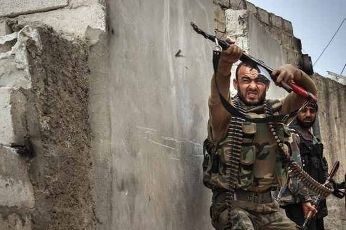
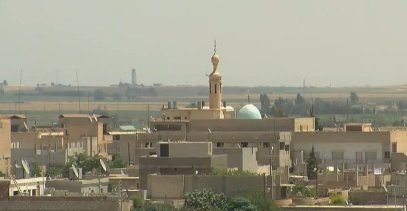
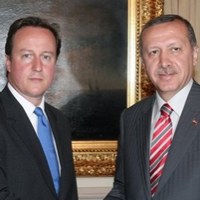
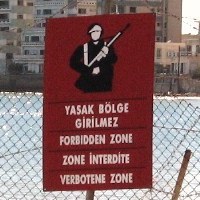
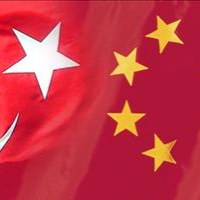
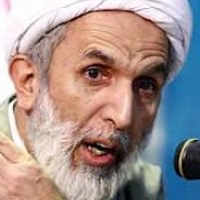
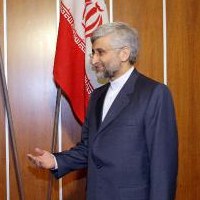




Latest Comments
Hello Mike, Thank you for your positive feedback to the article. I felt there wasn’t too much critical analysis of ...
Thanks for this considered and well constructed article. A follow up article on the manner in which the editorial contro...
THE CLUELESSNESS OF CLAIMING THAT OBAMA'S MIDDLE EAST POLICIES WERE A FAILURE CANNOT BE FURTHER FROM THE TRUTH, WHAT THE...
As long as Obama is the president of the usa do not trust the us government......
Thank you for an good read....